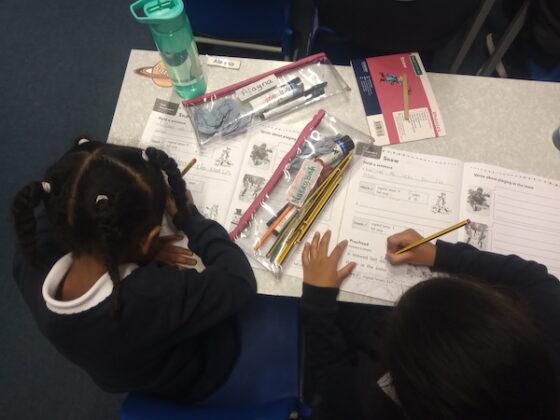Inclusive Learning – Giving Every Child Their Chance
At Old Ford, we work hard to ensure every one of our pupils has the tools and support they need to be able to learn in the same manner as their peers.
Often inclusive learning is seen as something solely for children with special educational needs. While this is certainly part of it, inclusive learning is far more – it is a practice which includes everyone.

We approach it by looking at the individual needs of every child at our school. These can be academic, and often are, but we also examine other factors such as independence, resilience and attention skills. There are often other barriers to learning to consider too, including social, gender and economic issues. This holistic approach allows us to see the whole picture, and from there we are able to take positive action and provide the most effective support.
There is often some confusion between the terms inclusive learning and integrated learning. Integrated learning, where students with and without disabilities all learn in the same classroom can be very effective, and where this is the case then we will work to provide it. However, in other cases integration can actually be a barrier to learning. For instance, deaf students engaging in shared reading may be better off away from the main class in a space that is acoustically suitable, enabling them to access the work in a more helpful environment.
We teach all our subjects in mixed ability groups except for phonics and mathematics which are streamed. Research shows that this is the best way for all pupils to make progress, and all pupils benefit from the mixed ability setting. If we do see significant gaps in knowledge or children require specialised support, we implement appropriate interventions such as 1:1 catch up phonics sessions, or SEND withdrawal groups for certain areas.
Much of the support we provide is done from within our school, however if we feel we don’t have the right resources to give the most effective support we will use external specialists instead. We also work closely with other schools in the Trust, regularly meeting to work together and share best practice and expertise, which can then be applied successfully to the individual schools.
Perhaps our approach to inclusive learning is best summed up by our philosophy which is ’Aim high, have high expectations for all, some will need more support or scaffolding to get there, but the expectation is that they will all achieve.’ We want all our pupils to fulfil their potential, and we will provide them with the opportunities they need to do so.

